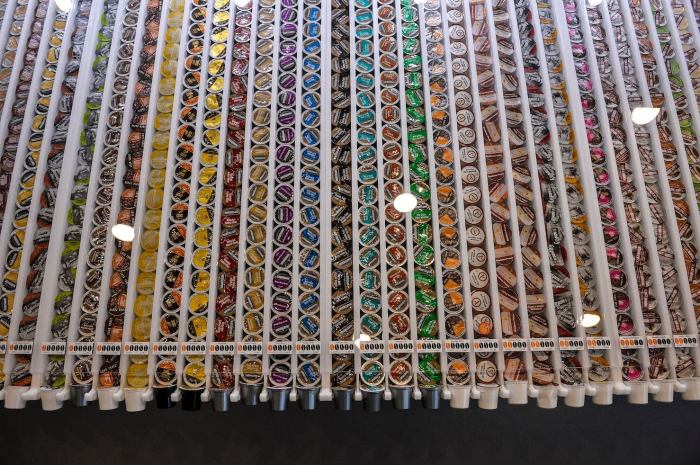Fidget spinners, a new craze that has basically divided the world into two camps: #TeamSpinner and #TeamStopIt, were created by two teenagers who made $350,000 in the first six months of sales.
Fidget spinners are gadgets that look like airplane propellers or spinning car rims in a 50 Cent video. They are used to help people with anxiety or OCD focus on tasks or to just annoy the hell out of school teachers.
We have two 17-year-old high school students, Allan Maman and Cooper Weiss, to thank for it.
Maman and Weiss founded Fidget360, one of the first companies to mass produce fidget spinners after Maman was looking for a toy to play with to help his attention deficit hyperactivity disorder (ADHD), he explained to CNBC.
“I would say that initially a lot of adults probably saw fidget spinners and thought they were a dumb idea,” Maman told Mic.
“When I first started and showed my parents what I was making, they were like, ‘OK, so it spins. There’s nothing special or too neat about it.’ But once you’re a kid and you see, like, how good it is to have in class and how fun it is and how everyone wants one, you get it.”
“I think kids or teens have a unique ability to see markets for certain products before older people,” he continued. “Especially when it comes to Gen Z, kids are the first ones to pick up on that stuff, and now with the internet, we can just make it for ourselves.”
After seeing fidget spinners on Etsy, Maman decided to use the 3-D printers at his high school in Armonk, New York, to mass produce them.
Maman teamed up with Weiss, his partner in a social media venture called Nito, and asked his physics teacher for lessons in 3-D printing.
A few weeks and hundreds of fidget spinners later, the school wasn’t happy with the teens earning $25.99 a pop.
“They didn’t like the concept of us making a profit off of the school’s 3-D printers,” Weiss told Mic.
“I recognized them as a phenom the first week I started selling them at school,” Maman said. “Literally every kid came up to me asking me to get one.”
“I had to stay after school until 8 p.m. to keep up with demand,” he added. “I became really good friends with the janitors and they would leave the door to the physics room unlocked so I could use the printer nonstop.”
Maman was called into the vice principal’s office and told if he didn’t halt production, he’d be suspended from school.
Since they were making mad spinner money, the two young entrepreneurs purchased their own 3-D printer and set up shop in the basement of Weiss’ parents’ house.
The teens admit they made a mistake when they decided against making the spinners with injection molding in China, a high-volume manufacturing process that injects the medium into a mold.
“If we got the injection molding during that time all of those [sales] would have been ours,” Weiss told CNBC.
Weiss and Maman consider themselves “serial entrepreneurs,” so the world can expect more products from them, including a new type of battery iPhone case.
In the fall, Weiss will start as a freshman at the University of Michigan and Maman, admittedly better at his side businesses than school, plans to get his grades up at a community college before transferring.


















